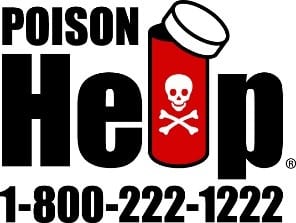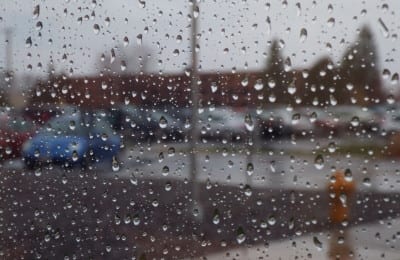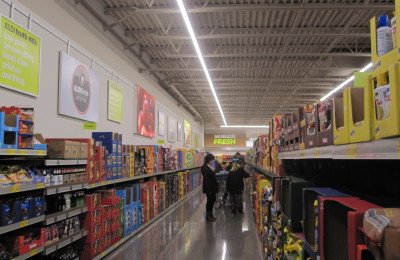National Poison Prevention Week
By Lynne Bauer, RN
 Last week was National Poison Prevention Week. The purpose is to raise awareness about the dangers of poisonings and how to prevent them. Poison Prevention Week offers a great opportunity to highlight how people can prevent poison exposures as well as raise awareness about the immediate availability of health professionals at the poison centers. The health professionals are available 24 hours a day, seven days a week to help those with poisoning emergencies or to answer information questions about medications, household products, chemicals, bites and stings, plants and mushrooms, and many other things.
Last week was National Poison Prevention Week. The purpose is to raise awareness about the dangers of poisonings and how to prevent them. Poison Prevention Week offers a great opportunity to highlight how people can prevent poison exposures as well as raise awareness about the immediate availability of health professionals at the poison centers. The health professionals are available 24 hours a day, seven days a week to help those with poisoning emergencies or to answer information questions about medications, household products, chemicals, bites and stings, plants and mushrooms, and many other things.
Medications and household products used in the wrong way, in the wrong amount, or by the wrong person can be dangerous, and poisonings can happen anywhere to anyone.
According to the CDC (Center for Disease Control), poisoning is the No. 1 cause of injury death in the U.S., with most of these deaths due to drug and medicine misuse and abuse.
Here are a few tips to help prevent poisonings in children and adults:
Drugs and Medicines
- Only take prescription medications that are prescribed to you by a healthcare professional. Misusing or abusing prescription or over-the-counter medications is not a “safe” alternative to illicit substance abuse.
- Never take larger or more frequent doses of your medications, particularly prescription pain medications, to try to get faster or more powerful effects.
- Never share or sell your prescription drugs. Keep all prescription medicines (especially prescription painkillers, such as those containing methadone, hydrocodone, or oxycodone), over-the-counter medicines (including pain or fever relievers and cough and cold medicines), vitamins and herbals in a safe place that can only be reached by people who take or give them.
- Follow directions on the label when you give or take medicines. Read all warning labels. Some medicines cannot be taken safely when you take other medicines or drink alcohol.
- Keep medicines in their original bottles or containers.
- Monitor the use of medicines prescribed for children and teenagers, such as medicines for attention deficit hyperactivity disorder, or ADHD.
- Dispose of unused, unneeded, or expired prescription drugs properly.
Household Chemicals
- Always read the label before using a product that may be poisonous.
- Keep chemical products in their original bottles or containers. Do not use food containers such as cups, bottles, or jars to store chemical products such as cleaning solutions or beauty products.
- Never mix household products together. For example, mixing bleach and ammonia can result in toxic gases.
- Wear protective clothing (gloves, long sleeves, long pants, socks, shoes) if you spray pesticides or other chemicals.
- Turn on the fan and open windows when using chemical products such as household cleaners.
Keep Young Children Safe from Poisoning
Be Prepared
- Put the poison help number, 1-800-222-1222, on or near every home telephone and save it on your cell phone. The line is open 24 hours a day, 7 days a week.
Be Smart about Storage
- Store all medicines and household products up and away and out of sight in a cabinet where a child cannot reach them.
- When you are taking or giving medicines or are using household products:
- Do not put your next dose on the counter or table where children can reach them—it only takes seconds for a child to get them.
- If you have to do something else while taking medicine, such as answer the phone, take any young children with you.
- Secure the child safety cap completely every time you use a medicine.
- After using them, do not leave medicines or household products out. As soon as you are done with them, put them away and out of sight in a cabinet where a child cannot reach them.
- Be aware of any legal or illegal drugs that guests may bring into your home. Ask guests to store drugs where children cannot find them. Children can easily get into pillboxes, purses, backpacks, or coat pockets.
Other Tips
- Do not call medicine “candy.”
- Identify poisonous plants in your house and yard and place them out of reach of children or remove them.
What To Do If A Poisoning Occurs
- Remain calm.
- Call 911 if you have a poison emergency and the victim has collapsed or is not breathing. If the victim is awake and alert, dial 1-800-222-1222. Try to have this information ready:
- the victim’s age and weight
- the container or bottle of the poison if available
- the time of the poison exposure
- the address where the poisoning occurred
- Stay on the phone and follow the instructions from the emergency operator or poison control center.




